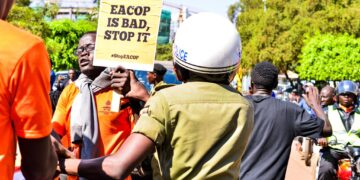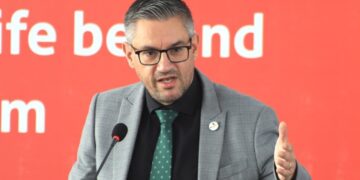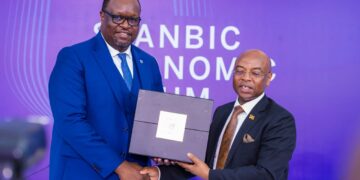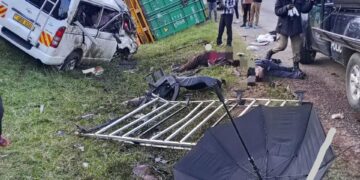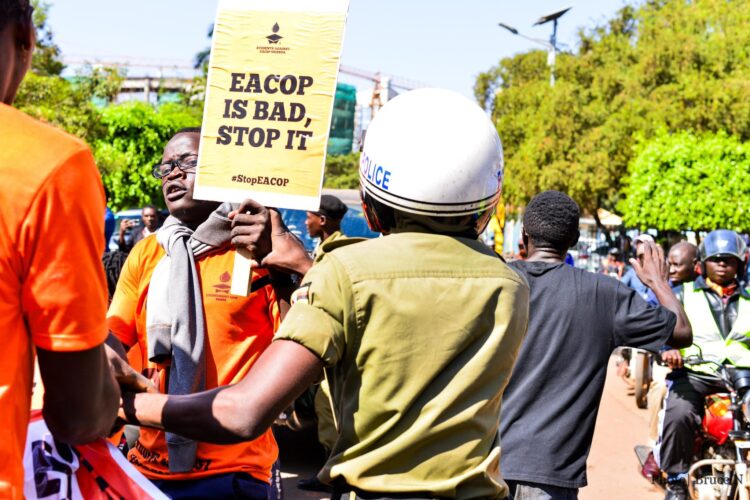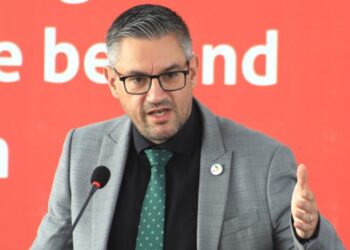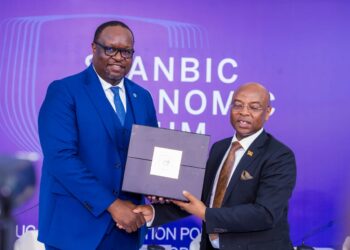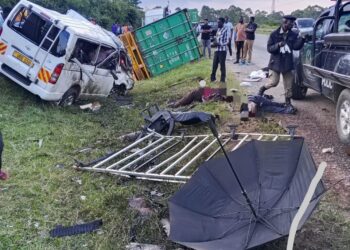OPINION
The #StopEACOP Coalition strongly condemned the financial institutions that have chosen to bankroll the destructive East African Crude Oil Pipeline (EACOP), as announced by the EACOP Ltd company on Wednesday. While concerning, the announcement marks a desperate attempt by the EACOP company to inspire investor confidence. The announcement, which does not disclose the loan amount committed by the five banks, cannot conceal the project’s failure to reach full financial close after more than seven years of delay.
Several lenders have made previous public announcements of their intention to finance EACOP. Reported commitments from Afreximbank and Islamic Development Bank date back to 2022, following which both institutions faced intense backlash from Ugandan and Tanzanian civil society. Standard Bank, similarly, has for years been the subject of unyielding opposition for its reported involvement.
Nonetheless, with this new confirmation, the African Export-Import Bank (Afreximbank),Standard Bank of South Africa, Stanbic Bank Uganda, KCB Bank Uganda, and the Islamic Corporation for the Development of the Private Sector (ICD) have marked themselves as enablers of climate chaos, environmental destruction, and the continued exploitation of Uganda and Tanzania’s natural resources for the benefit of international profiteers at the expense of local communities.
At a time when the world is experiencing the ever-escalating impacts of climate change, this decision to fund a massive fossil fuel infrastructure project is not just irresponsible- it is an active assault on our planet and our people. EACOP promises only to deepen the crisis of climate collapse, exacerbating droughts, floods, and extreme weather events that disproportionately affect African communities, who have contributed least to the climate crisis but suffer its worst impacts.
Furthermore, the so-called promises of development made by EACOP and its backers are nothing more than corporate propaganda. The reality is starkly different; tens of thousands of people have already been displaced to make way for the pipeline, facing loss of livelihoods, inadequate compensation, and worsening socio-economic conditions. The project prioritizes the extraction of Uganda’s oil (alongside potential exploitation of reserves in the Democratic Republic of Congo and South Sudan) not for the benefit of the people, but for refining and consumption abroad and for the profit of TotalEnergies and its partners, while local commun
The EACOP project is going to be the biggest heated oil pipeline in the world. It links two oil extraction sites close to lake Albert in Uganda to Port Tanga, on the Tanzanian coast. While the chinese company CNOOC is handling the Kingfisher site, the french company Total energies is responsible for the Tilenga site as well as the construction of the mega-pipeline.
During our engagements, women shared with us that the construction of the East Africa Crude Oil Pipeline (EACOP) has also continued to the impacts of climate change through pushing communities into poverty, scarcity of water, food insecurity due to loss biodiversity, flooding, drought. All these factors have increased on the carbon gas emissions that is over 1.5 degrees which is against the Paris agreement.
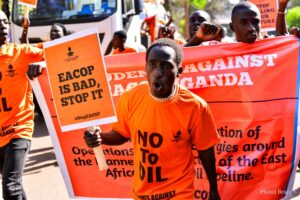
The EACOP construction displacing schools and students has already led to early pregnancies for girls and women in kijjumba ,kyakatemba kikuube, who are also (sometimes lethally) more deprived of medical attention and access to hospitals as they too have been moved.
They further discussed the need to localize climate finance for African agenda and requested government officials, development partners to support their initiatives that could increase climate finance at grassroots level to improve their livelihoods and reduce Gender Based Violence (GBV) in families and communities. The East Africa Crude Oil Pipeline (EACOP) project, extending over 1,443 kilometers from Uganda to the Tanzania is set to be the world’s longest heated oil pipeline, cutting across biodiverse ecosystems, critical water sources and densely populated areas. Despite promises of economic gains, the reality on the grounds reveals significant, harmful impacts on local communities, especially marginalized groups such as women, girls and indigenous populations.
Observations
Land acquisition and resettlement processes for EACOP and the associated oil fields have already begun and communities report lack of transparency, accountability delays in compensation.
Some families received much less than was expected. Local landowners that resist this process have faced intimidation and manipulation, forcing them to give up their land for cash compensation. There has been increased land grabbing from vulnerable women by oil companies due to oil activities taking place in different villages in Hoima and Kikuube districts. Despite promises of economic gains, the reality on the ground reveals significant, harmful impacts on local communities, especially marginalized groups such as women, girls, and indigenous population.
Demands
Women are disproportionately affected by the pipeline’s construction, facing increased unpaid care work, loss of income due to displacement, and heightened risks of gender-based violence.
- Continue to advocate for the rights of affected communities, monitor the project’s implementation, and hold stakeholders accountable for their commitments.
- Calling upon ,oil companies ,government ,world leaders to stop financing EACOP project.
- Transiting from fossil fuels to renewable energy.
Conclusion
The East African Crude Oil Pipeline (EACOP) project, while presenting potential economic opportunities, also poses significant environmental, social, and health risks to the communities it impacts. The construction of the pipeline threatens biodiversity, exacerbates climate change, and displaces thousands of individuals, particularly affecting vulnerable groups such as women, girls, and indigenous populations. The loss of land, livelihood disruption, and increased health and safety hazards underline the urgent need for stronger accountability and mitigation strategies.
For God And My Country
By Ahirirwe Leticia,
The writer is a Communications Officer at Women For Green Economy Movement (WoGEM) Uganda
